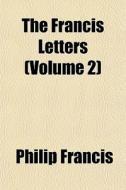
Protestantism And Orthodoxy In Romania During And After The Communist Era
- Editore:
Grin Publishing
- EAN:
9783656718642
- ISBN:
3656718644
- Pagine:
- 20
- Formato:
- Paperback
- Lingua:
- Tedesco
Descrizione Protestantism And Orthodoxy In Romania During And After The Communist Era
Seminar paper from the year 2012 in the subject Theology - Historic Theology, Ecclesiastical History, grade: 1,0, Trinity College Dublin (Irish School of Ecumenics), course: Fluid Religion and Orthodoxy, language: English, abstract: Not only historically speaking but also from a religious point of view the communist era is an interesting and highly influential period of time for Eastern Europe and the rest of the world. This age has significantly changed the relationship between church and state in Eastern Europe and Russia from a balanced condition to a rather hostile and combating relation. The reason for this is not only the unconditional adoption of the Marxist ideal of atheism, but primarily a struggle of powers. In the communist era, Religion was perceived as a disturbing factor regarding the political system and the communist government felt questioned and weakened by the influence and authority of the ecclesial institution. Hence, one of the main aims was to weaken and minimize the churches¿ impact on society. However, there are two questions that arise within the analysis of the relationship between church and state during the communist era. The first question is culturally related and queries the equality of the relation in every Eastern European country and Russia. However, since it would be far too complex to answer the inquiry whether every Eastern European government treated the churches the same way or at least similarly, in this essay I am going to focus on a specific Eastern European country. Hence, I am going to analyze the situation in a country which is especially exemplary for the effects of the communist regime, namely Romania. The second question related to this analysis is whether the relationship between state and church can be defined holistically by referring to the term ¿church¿ in general. Was the relationship between the state and the Romanian Orthodox Church as the national church similar to the relation between the state and smaller churches? Since Sabrina Petra Ramet pointed out, the ¿[¿] Protestant churches were more ¿troublesome¿ for the communists than the Orthodox Church or Catholic Church.¿ . Therefore I consider it most interesting to compare the ecclesial situations of the Orthodox Church and the Protestant churches in Romania during the communist era and under the communist regime.
Inserisci la tua e-mail per essere informato appena il libro sarà disponibile



